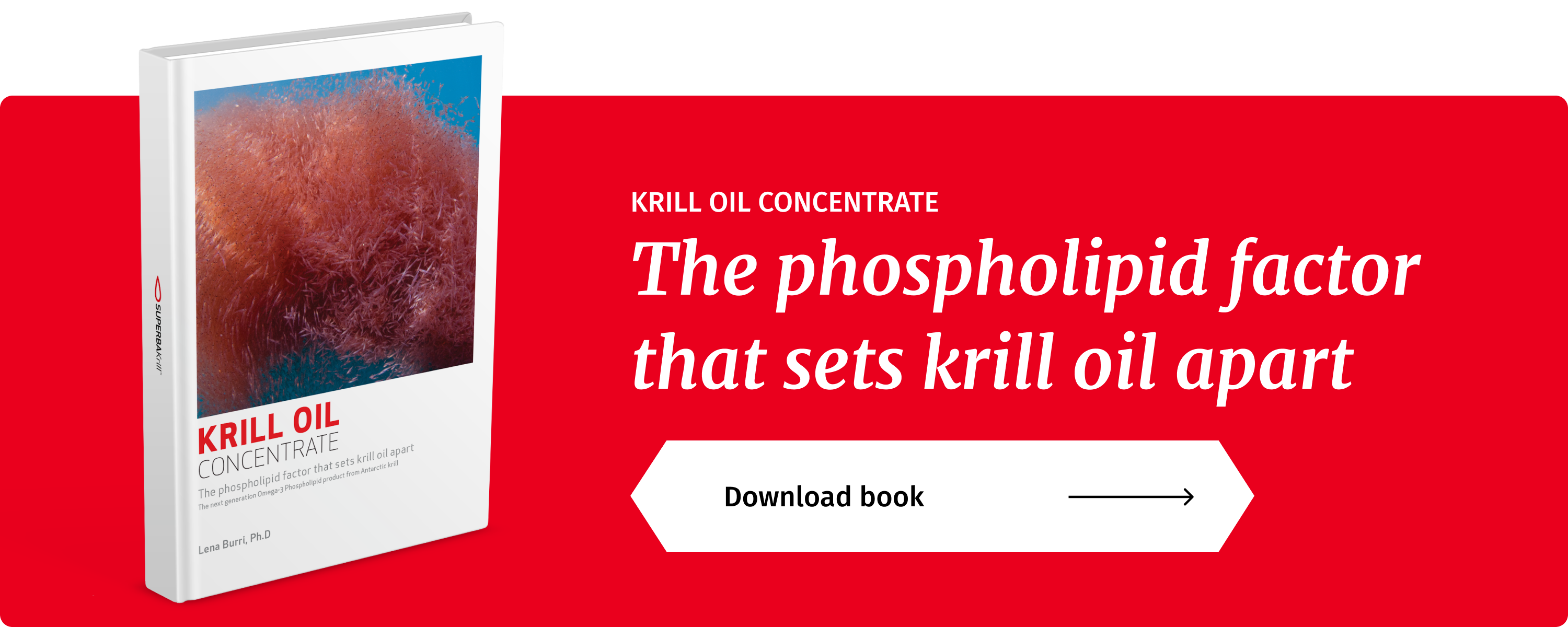The krill oil market is on the move thanks to innovation, new delivery formats and science. Aside from the exciting growth and future of the category, it’s important to really understand the composition of krill oil and how it differs from other omega-3 options.
What nutrients does Krill oil have? Krill oil has a powerful combination of nutrients that help promote various health aspects, making it a superior choice for those seeking out an effective omega-3 option.
The Highway to “Cell”, a.k.a. The Phospholipid Advantage
Not all omega-3s are created equal. In fact, there are important differences between sources and how they are delivered in the body. Krill oil provides EPA and DHA mainly in the form of phospholipids, integral to the body’s cells and cell membranes. Since phospholipids are structurally different than omega-3 triglycerides (found in fish and algal oils), the difference dictates how EPA and DHA enter into the body.
Krill oil’s omega-3s are carried directly into the blood via the phospholipids, so the body immediately recognizes them and incorporates them into the cells before carrying them to the tissues and organs that need them the most. On the contrary, omega-3 oils delivered as triglycerides must be processed in the liver before they can be taken up by the cells and used by the body.
Astaxanthin: a potent antioxidant with anti-inflammatory properties
Krill oil gets its deep red color from the antioxidant carotenoid found in astaxanthin, but more importantly, it has additional health benefits. Astaxanthin has anti-inflammatory properties with the ability to cross the blood-brain barrier. It also has been associated with protecting lipids and low-density lipoproteins (LDL) from oxidation and can be beneficial for cardiovascular health, because it increases the “good” HDL-cholesterol and lowers triglyceride levels.
Furthermore, it has the potential to neutralize free radicals, the unstable molecules that can damage cells and increase the risk for age-related diseases, cancer, and heart disease. It also helps keep omega-3s fatty acids naturally fresh and stable, eliminating the need for added stabilizers.
Choline
Like astaxanthin, choline is a key component of krill oil and essential for the body for many things such as cell structure, function, and signalling. And like omega-3 fatty acids, choline contributes to cardiovascular, liver and cognitive health. Choline, an organic, water-soluble compound, is neither a vitamin nor a mineral, rather it is often grouped with the vitamin B complex due to its similar properties and functions. And although small amounts of choline can be made in the liver, the majority needs to come from our diets, similar to omega-3s. There is evidence to suggest that choline has been shown to positively impact brain function as well as reduce the risk of breast and colorectal cancers.Read more: What is Krill oil?
As you can see, krill oil is an extremely unique omega-3 option that possesses important nutrients for overall health and wellbeing.


